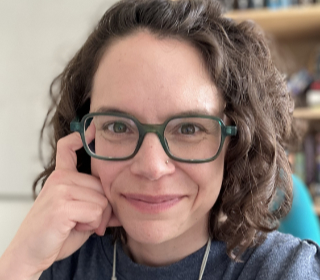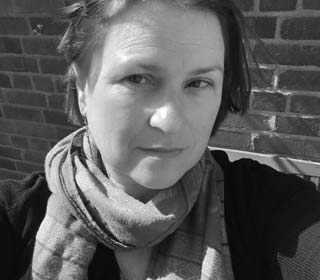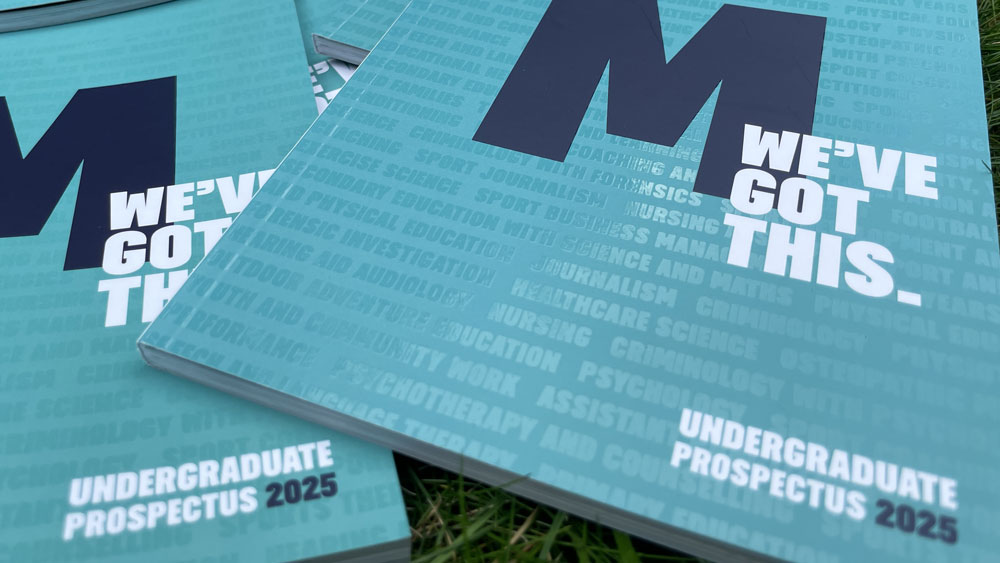
Interested in finding out more about our BA (Hons) English degree? Contact Leah Phillips on lphillips@marjon.ac.uk for more information.
BA (Hons) English (Year 3 only)
An innovative and boundary-pushing course. You will explore children's and young adult literature, consider and question the classics, and investigate new story forms. You'll undertake project-based learning while developing your critical thinking and writing skills. Through the course, you will acquire insight into the inherent value of literature and its power in communicating and shaping human experience. *Closed to new students, 3rd year transfer applications only*


Study diverse texts from around the world
Take a post-colonial and progressive approach

Apply now for this course
Entry requirements
Three A-levels at grades CCC to include one of English Language, English Literature or a Humanities subject
Or BTEC triple grades MMM or above
Or Access 23-45 D/M with min 6D
Or T levels P (C+)
And GCSE English Language at grade 4 or grade C or above
Applicants with other qualifications and/or experience will be considered on an individual basis
UCAS points 96
UCAS code Q3W8
UCAS institution code P63
Duration Three years full-time or up to six part-time
Any questions?
Contact Tara Godber, our Applicant Support Coordinator, if you have any questions. Email: applicantsupport@marjon.ac.uk and Tara will get back to you.
Course Summary
The English degree at Marjon University is an innovative and invigorating programme that takes a fresh look at literature and language and introduces you to complex, powerful and engaging works.
In Year 1, your first module – Literature that Shook the World – engages with literature at the centre of contemporary clashes and conflicts. For example, Aidan Thomas's young adult novel Cemetery Boys (a Latinx trans, queer, paranormal love story), Sam Selvon's Lonely Londoners (a balladesque telling of the Black immigrant experience), and Landays (a traditional Afghan poetic form often used by women). The module will also ask you to reconsider potentially problematic books from your childhood and what it means to deface and destroy works of art, including books. Through all these stories and more, you will be asked to consider literature's role in the world.
The programme considers the classics and chronology of literature in English, even as it asks you to question why some books are considered classics and others are not. During it, you will explore boundary-pushing forms of story, including adaptations, fanfiction, digital narratives, and flash fiction. In your third year, our dystopian fiction module – Discord, Disaster & Dreams – looks at George Orwell’s influential and controversial Nineteen Eighty-Four and powerful, complex novels such as N.K. Jemisin’s The Fifth Season.
On this BA, you develop your understanding of literature that encompasses both old and new, conventional and radical, the fringe and the mainstream. You develop a solid foundation from which to analyse and interpret literature, write with precision and clarity, and debate with passion and conviction. This programme helps you grow intellectually and personally, cultivating knowledge and skills you can take into further study or employment.
Why this course at Marjon?
An inclusive, progressive approach to reading literature, considering texts from different voices
Language modules include looking at modern power structures and how power is won or lost based on language
Study on an open, green campus - perfect for inspirational thinking
Careers and employability are threaded throughout the programme
Opportunity to become involved in Marjon's Arts Centre and to enhance your learning through theatre visits and field trips
Our small class sizes are perfect to push your thinking as you'll always be involved in the debate
Modules for this course
Course Snapshot
“ You will learn to engage with critical and cultural theory in the first year, as well as examining the impact of Shakespeare in the modern world. On top of that, you will also look at different forms of literature, including new forms such as flash fiction and micro-poetry. In the second year, you will learn how great books become great films and discover new layers to children’s and young adults’ literature. During the third year, you will look at how and why books become classics and how they endure and resonate in time. You’ll also learn about dystopian fiction and take on an honours project.”
1st Year
Literature that shook the world
The theory of English
Re-imagining Shakespeare
Plays, poetry & performance
Literature at the Vanguard
Living on the edge
2nd Year
Research 2: creative and curious
Learn to earn: placement and proactivty
From shelf to screen
Firebrand literature
The landscape of identity
Diversity in english
3rd Year
Honours project
Discord, disasters & dreams
Enduring classics
Mind, metaphor and meaning
Current students say...
Emily Hull
"I love discussing some of my favourite novels with other book-lovers on the literature part of the course and delving deeper into the story. Creatively, I love the freedom of being able to write whatever I enjoy writing. I have grown in confidence both academically and socially, learning that I can be so much better academically when I enjoy the subject. I have also made many wonderful friends for life."
Mark Scarrott
"The most enjoyable thing for me is meeting and working with other people with the same desires and drives as me. There is nothing better, than sharing your ideas with others. The course has helped me to craft my writing in the correct way. I have learned how to structure my stories in a way that is easy the follow. It has been a fulfilling period. As a disabled student the support that I have had from my tutor and from Student Services has been beyond reproach."
Paige Whiting
“I enjoy the freedom to be creative, and to have a network of other students to help come up with ideas, and critically analyse each other. I enjoy the wide range of literature we are able to read and the different styles we are able to study. As a passionate reader, it is interesting to see different opinions on a specific piece of work. I believe that this course has been fundamental in developing my own confidence whilst also finding a strong writing style.”
This course is perfect if you’re curious about
How writers from different backgrounds and experiences approach similar topics, such as their sense of home, their identity, or the future
How children’s and young adults’ writing tackles the challenge of difficult topics
How you would edit a 500-page book into a blockbuster film, identifying the essence of the story and discarding other material
How digital platforms such as Twitter and Instagram have challenged and influenced traditional definitions of literature
How language divides, conquers and influences politics
How writers attempt to change the world
“ I loved every single minute of my degree - the studying, the discovery, even the essay writing. I want my pupils to have the same sense of enlightenment and enjoyment that I had at university.”
See where our graduates are now
Rachel Bell
“Studying at Marjon gave me confidence in talking about my ideas and using my writing skills. My course also encouraged me to think about literature in its historical context – something which I now apply to the workplace. When assisting with and organising events, it’s important to think about the way the past should be presented, and to look into the significance of the event taking place. University has also taught me how to present my CV and understand and explain the skills I have.”
now works as an Events Assistant at Truro Cathedral.
Amy Davies
“Living away at university has given me independence and confidence to take on challenging tasks on my own. It has also given me academic skills and incredible subject knowledge. On a social level, life at university has improved my public people skills and helped me engage with people that I may not have been able to meet if I had jumped straight into the working environment."
now works as an English teacher
Emile Cole
"I learnt how many times you need to revise a piece of writing before it becomes ‘perfect’ (and even then, a piece of writing can always be improved!). I apply this at my work every day. I’m proud that I can honestly say there’s nothing I’d change about my time there. I loved the course and the people on it, and with the lecturers’ help I ended up leaving with a first, which was a massive help in landing a job."
is now working as a Technical Author.
What might you become?
With this BA (Hons) English degree behind you, there are many options ahead! If you are interested in publishing, journalism, editing or copywriting, then an English degree would give you a head start on the competition. Equally, English is a great stepping-stone into education (either primary or secondary), and there is the option of further study at Master’s level if you decide that you are not ready to put your books down!
Our close connections with the BBC and the education sector mean that Marjon is well-positioned to support you if the avenues of teaching or journalism particularly appeal to you. Placements and projects through the programme see students engage with the subject in work environments of their choosing. These include, but are not limited to, placements in primary and secondary schools, online teaching with refugee students overseas, online writing for a charity, proof reading, desktop publishing, arts event management, theatre review writing, and magazine publishing skills gained both through your academic studies and on placement transfer readily to many work environments and include high levels of proficiency in written and spoken communication, analytical techniques, and IT through experience of screenwriting, publishing and blogging software.
Many graduates from our programme are working as primary and secondary teachers of English, including as Heads of English in secondary schools, as arts events managers and media content writers. Others proceed to postgraduate study in related fields including to Marjon’s MA Literature for Children and Young Adults.
How you’ll be taught and assessed?
How will you be taught?
Teaching includes seminars, lectures, workshops, group and one to one tutorials, student presentations, and a variety of educational visits, including theatre trips. Our approach to teaching is designed to encourage participation in all aspects of learning, as we ask you to collaborate with peers, initiate independent projects and contribute to a wide range of interactive project groups. Over the course of the programme, you will be given access to a range of digital resorces and technology to support your learning.
How will you be assessed?
Our assessment diet is varied and designed to inspire and motivate. Essay-writing is a key and fundamental component of assessment on the programme, but it is far from being the only method we use. In your modules, you will be able to respond to assignment tasks by submitting written portfolios, producing innovative digital resources, such as blogs and vlogs, and producing presentations that illustrate your understanding of taught content.

Dr Leah Phillips is the Programme Lead for English BA (Hons) and the MA in Literature for Children and Young Adults. Leah has worked with students in the US and UK, in-person and online, and across various disciplines: English, Creative Writing, and Library and Information Sciences. Her research focuses on how fiction impacts its readers' lives, especially marginalised individuals and groups. She's also a first-generation university student from a working-class background and brings an inclusive approach to literature, encouraging all to participate. She’s always open to questions about the programme!
Fees and funding
Fees UK students: £9,250 per annum
Fees for International students: £14,500 per annum
This fee covers your tuition and access to course-specific equipment and facilities, as well associated services including access to the library, study skills support, IT support, student support and wellbeing services and membership of the Student Union. There may be additional costs by course.
Funding available for this course
Our Student Funding Advisors offer confidential and impartial advice about your funding options.
Learn moreLecturers

Claire is Programme lead for the Secondary PGCEs and Schools Direct. Claire's specialist subject is English and before joining Marjon she worked in various secondary schools in Exeter as well for South West Teacher Training. Her research interests are reflective practice, teacher identity and retention.

Leah is a Senior Lecturer in the School of Arts, Humanities and Social Sciences and the Programme Lead for the BA English and the MA Literature for Children and Young Adults.
Her research broadly focuses on how YA fiction impacts its readers’ lives, especially marginalised individuals and groups. Leah recently finished revisions on her first monograph, Female Heroes in Young Adult Fantasy Fiction: Reframing Myths of Adolescent Girlhood.
Away from the university, Leah undertakes a range of work in children’s literature and YA studies. In 2020, she founded the YA Studies Association (YASA), an international organisation existing to increase the knowledge of and research on YA literature, media, and related fields.
Find out more about studying BA (Hons) English at Marjon

Discover Uni collects data about university courses in the UK. All universities publish Discover Uni data on their online course pages enabling you to compare similar courses at different universities.


